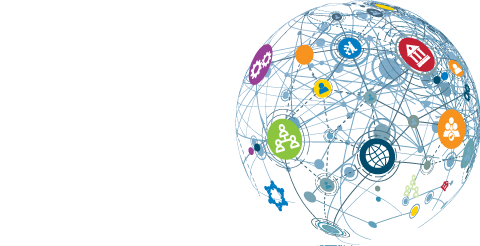
The UNESCO-UNEVOC International Centre: Who We Are | What We Do | Working With Us | Get in Touch
The UNEVOC Network: Learn About the Network | UNEVOC Network Directory
For Members: UNEVOC Centre Dashboard
Thematic Areas: Inclusion and Youth | Digital Transformation | Private Sector Engagement | SDGs and Greening TVET
Our Key Programmes & Projects: BILT: Bridging Innovation and Learning in TVET | Building TVET resilience | TVET Leadership Programme | WYSD: World Youth Skills Day
Past Activities: COVID-19 response | i-hubs project | TVET Global Forums | Virtual Conferences | YEM Knowledge Portal
Our Services & Resources: Publications | TVET Forum | TVET Country Profiles | TVETipedia Glossary | Innovative and Promising Practices | Toolkits for TVET Providers | Entrepreneurial Learning Guide
Events: Major TVET Events | UNEVOC Network News
 |  |
Dear readers,
Recent developments have shown that TVET systems need to adapt to multiple disruptions that are reshaping education systems and labour markets worldwide, including climate change, demographic shifts and the growing presence of digital technologies in almost every aspect of life. It has also become evident that these global challenges can only be effectively addressed through collective action.
Over the past three months, UNEVOC Network members came together to contribute their vision and expertise to further develop UNESCO’s new Strategy for TVET 2022-2029, as well as engage in peer learning to explore the topic of new qualifications and competencies in TVET. The perspectives shared have showcased how emerging challenges can create new opportunities for innovation within the TVET ecosystem.
This issue of the UNEVOC Quarterly highlights our programmes to support TVET leaders in responding to the ongoing digital transformation and to help TVET institutions mainstream entrepreneurial learning. For a more detailed overview of our work, we invite you to access our Biennial Report 2020-2021.
As we approach the end of 2021, we take this opportunity to announce that on 1 January 2022, Mr Friedrich Huebler will start his appointment as Head of UNESCO-UNEVOC.
We look forward to your continued collaboration in the coming year and we wish you a healthy and successful 2022!
Best wishes from the UNESCO-UNEVOC team
Adapting to the new normal
This report gives an overview of the UNESCO-UNEVOC International Centre's activities during the biennium 2020 - 2021. It highlights how UNESCO-UNEVOC has supported Member States in their efforts to strengthen and upgrade TVET systems and promoted opp ...
TVET delivery: providing innovative solutions
This volume focuses on the micro-level stakeholders involved in the implementation of TVET skilling programmes and/or their components. It will suit lecturers, administrators and programme designers interested in understanding some of the challenges ...
TVET advocacy: ensuring multi-stakeholder participation
This volume addresses the role of meso-level TVET stakeholders in the process of maintaining and updating TVET systems to ensure they remain fit for purpose. Meso-level stakeholders indicate institutions participating in the advancement of TVET syste ...
TVET governance: steering collective action
This volume is written with the macrolevel or system-level stakeholder in mind. Macro level stakeholders can be any number of bodies with a mandate for collective action in TVET. This primarily covers ministries and statutory bodies with legally assi ...
Non-state actors’ role extends beyond provision of schooling to interventions at various education levels and influence spheres. Alongside its review of progress towards SDG 4, including emerging evidence on the COVID-19 pandemic’s impact, the 20 ...
This evaluation reviewed the implementation of the TVET Strategy 2016-2021 that guided UNESCO’s work in technical and vocational education and training. Based on desk research and consultations with more than 60 peoples, the evaluation concluded th ...
The Inter-Agency Group on Technical and Vocational Education and Training (IAG-TVET) was convened by UNESCO in 2008 to ensure a good coordination of activities by the key international organizations involved in the delivery of policy advice, programm ...
Our humanity and planet Earth are under threat. The pandemic has only served to prove our fragility and our interconnectedness. Now urgent action, taken together, is needed to change course and reimagine our futures. This report by the International ...
This UNESCO global study exposes failure to factor in gender in COVID-19 education responses and widening gaps in access to quality education following school closures. Citing some 90 countries, the study shows that despite governments' and partn ...
Subscribe here: https://unevoc.unesco.org/home/register